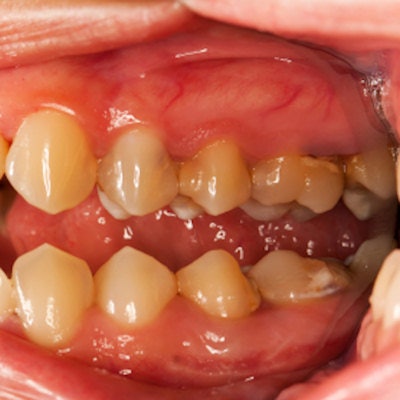
An experimental drug shows potential as a regenerative treatment for periodontal disease, according to research from the Lankenau Institute for Medical Research (LIMR) in Wynnewood, PA.
In a preclinical study, a team led by Ellen Heber-Katz, PhD, assessed the performance of 1,4-DCPA, an experimental drug that works by inhibiting a molecule that blocks the production of hypoxia-inducible factor-1 (HIF-1a), a master molecule and key component of the body's healing response. By temporarily elevating HIF-1a, the drug shifts a tissue's metabolic state toward one used in early fetal development, according to the nonprofit institute.
Diseased gums and the surrounding jawbone were fully restored after treatment, according to Heber-Katz.
"The results of this study are as powerful as we could have anticipated," Heber-Katz said in a statement. "The restoration of significant amounts of lost bone and tissue was complete. I'm optimistic that this drug will move forward and eventually be used to prevent tooth loss in patients suffering from periodontal disease -- one of the many ways we think it could be useful."
What's more, the study also offers the first preclinical proof of concept for an off-the-shelf drug that could dramatically improve an individual's healthspan by regenerating bone, according to LIMR President George Prendergast.
"It also for the first time suggests the potential anti-aging uses for this drug treatment as far as broadening how it can be used to instruct perfect healing by the body," he said.



















